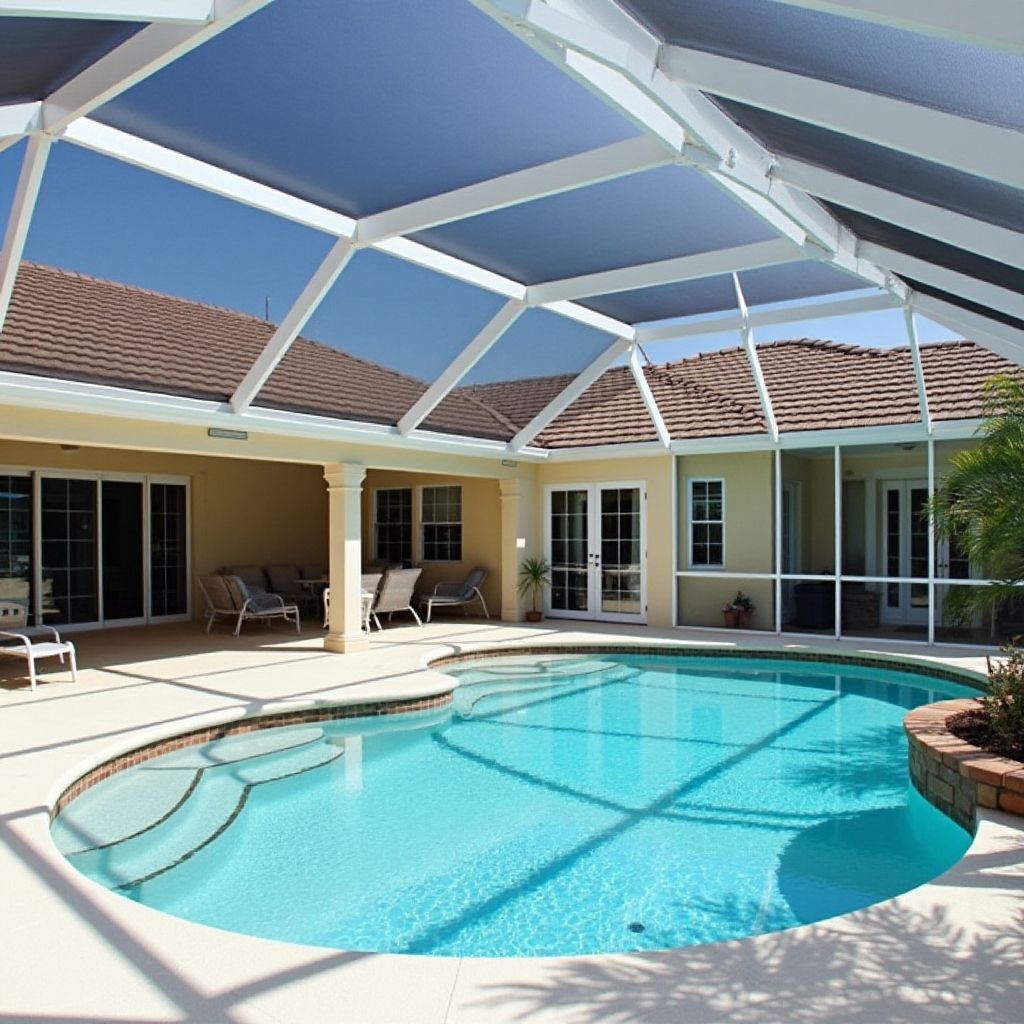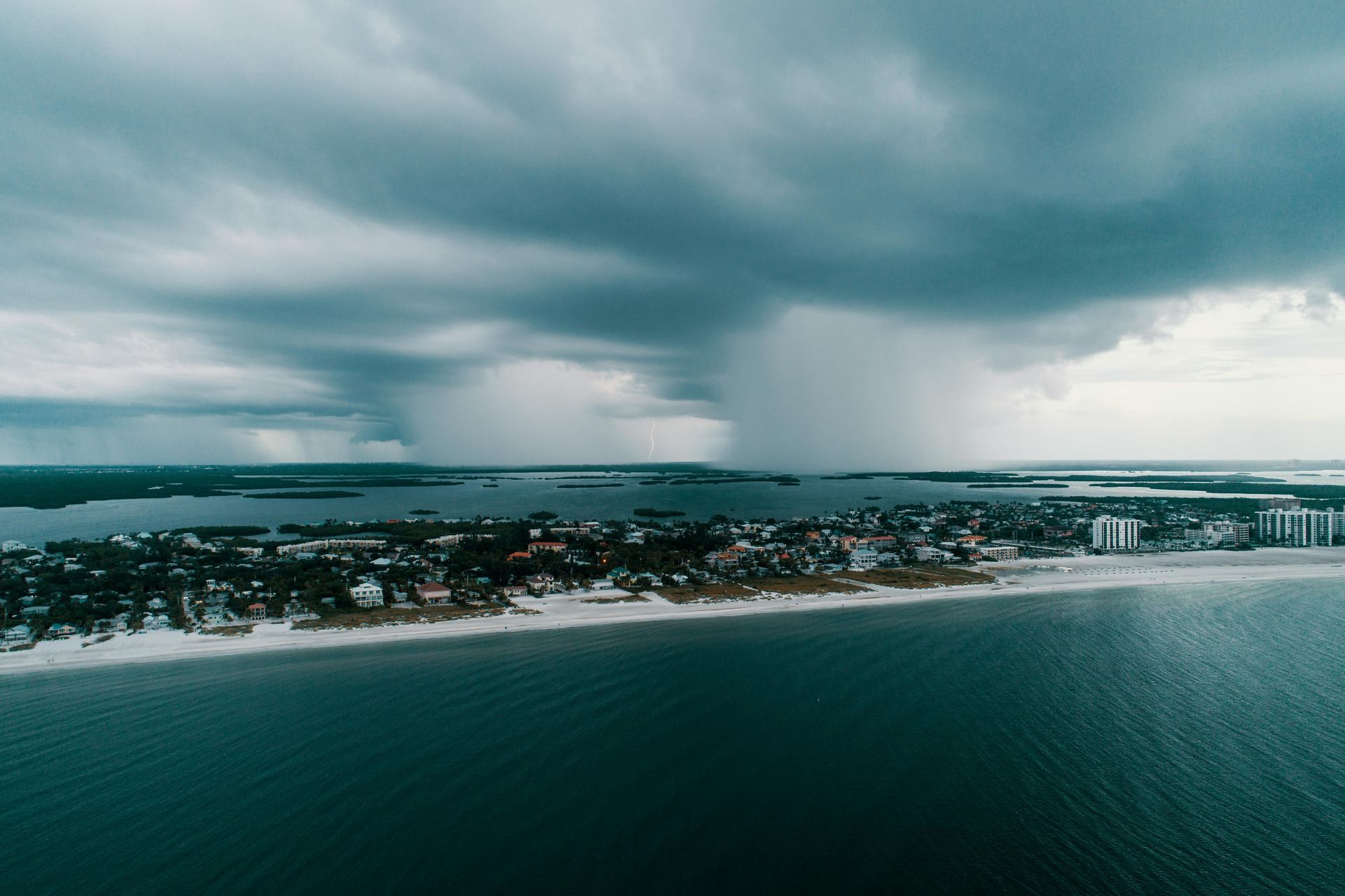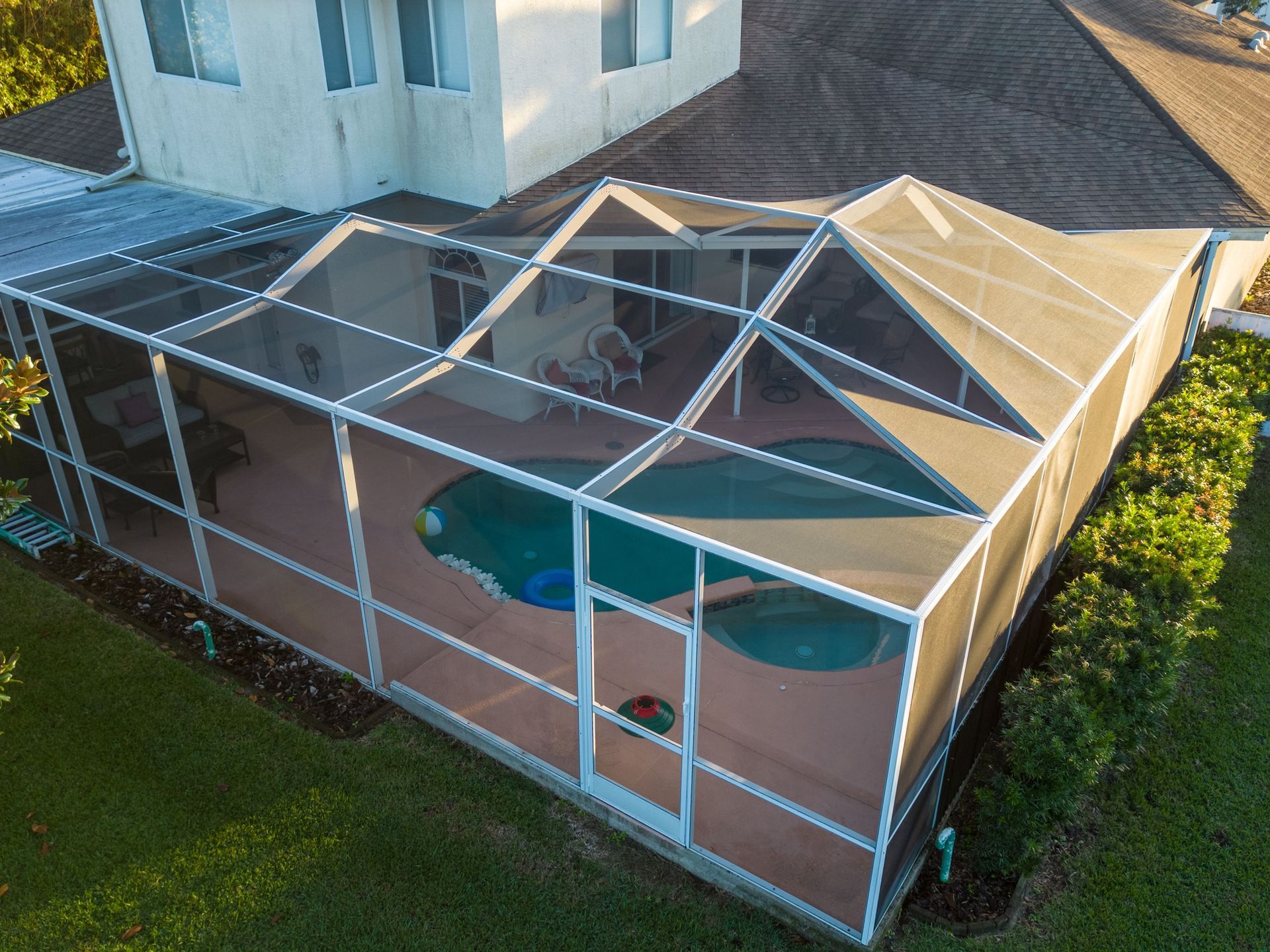Best Materials for Pool Screen Enclosures in Florida
The Best Materials for Pool Screen Enclosures in Florida
When thinking of building or having repairs done on a pool screen enclosure in Florida, choosing the right materials is critical. The harsh sun, heavy rains, humidity, and frequent tropical storms demand materials that are durable, low-maintenance, and weather-resistant. Whether you’re installing a new structure or replacing old panels, here’s a breakdown of the best materials to use for long-lasting results in the Sunshine State.
Below is a nice summary of costs and key considerations from Bob Villa.
https://www.bobvila.com/articles/pool-screen-enclosure-cost/
I. Frames: Aluminum frames are the Industry Standard:
Aluminum is the most common material used for pool cage frames in Florida. It’s lightweight, rust resistant, and can handle Florida’s high winds when properly anchored. Powder coated aluminum is especially popular because it resists corrosion, fading, and scratches. White and bronze finishes are the most common colors, designed to match home exteriors and HOA guidelines.
Pros:
· Durable and rust-resistant
· Low maintenance
· Can be engineered to withstand hurricane-force winds
Cons:
· Can dent under heavy impact
· Requires professional installation for best results
Here is some more specific Frame Materials information for Pool Screen Enclosures in Florida
Florida’s climate demands pool screen enclosure materials that can withstand intense humidity, salty air, harsh UV rays, and powerful hurricane winds. Below is a breakdown of the most commonly used top frame materials, along with their advantages and drawbacks:
Aluminum (Most Common & Recommended)
Grades 6061-T6 and 6005-T5 are the industry standards in Florida, offering excellent durability and structural integrity. Aluminum frames are typically powder-coated (in finishes like white, bronze, or black) for enhanced corrosion resistance.
Pros:
· Lightweight yet exceptionally strong
· Naturally corrosion-resistant (especially with powder coating)
· Long lifespan: 15–20+ years
· Engineered to meet hurricane wind-load ratings
Cons:
· May still corrode near saltwater over time without proper coating
· Slightly more expensive than lower-grade or DIY materials
Stainless Steel (Rarely Used for Frames)
Primarily used for hardware such as screws, bolts, and brackets rather than the structural frame itself.
Pros:
· Extremely durable and corrosion-resistant
Cons:
· Too heavy and costly for use as the full frame
· Not common for complete enclosures
Galvanized Steel
While strong, galvanized steel is not ideal for Florida’s coastal environments.
Pros:
· High strength
Cons:
· Prone to rust over time, even with coating
· Heavier than aluminum
· Limited corrosion resistance in humid, salty climates
Recommended Best Practice in Florida
· Opt for 6061-T6 or 6005-T5 aluminum with a high-quality powder coat
· Use stainless steel fasteners to minimize rust and corrosion
· Upgrade to reinforced beams or hurricane-rated connectors (tested for 150+ mph wind resistance)
Pro Tip:
Always request Florida Building Code–approved materials to ensure your enclosure meets required safety and weather resistance standards.
II. Screen Mesh – Choose the Right Grade
Not all screens are created equal. In Florida, you’ll need a mesh that can stand up to intense UV rays, high humidity, and pests. Here are the top options:
· Standard Fiberglass Mesh: Affordable and commonly used but may only last 5–7 years in Florida’s climate.
· Polyester Screen (No-See-Um Mesh): Tighter weave keeps out tiny insects like no-see-ums. More durable than fiberglass.
· Florida Glass: A laminated screen with privacy film that also blocks debris and water spray. Great for lower panels near landscaping or neighbor visibility.
· Pet-Resistant Screen: Thicker and stronger to resist claws and wear ideal if you have pets or kids.
Best Pick: Polyester screens with UV protection offer the best combination of durability and clarity for Florida’s conditions.
III. Fasteners and Hardware – Go Stainless Steel
Don’t overlook the importance of high-quality fasteners and screws. Stainless steel fasteners, especially those with a corrosion-resistant coating, will help extend the life of your enclosure. Avoid galvanized steel it corrodes quickly in coastal environments.
IV. Roof Styles – Panels or Open-Air?
Florida homeowners often choose between full panel roofs and open mesh ceilings. Full polycarbonate or acrylic panels provide more shade and rain protection, but they trap heat. Mesh tops, on the other hand, allow better airflow while still keeping out leaves and insects. A combination of both is often used for a balanced look and function.
Below is a helpful article from Florida Screen Factory on a wide range of materials:
https://screen-factory-florida.com/comparing-different-materials-for-screen-enclosures/
In Summary:
When building or upgrading a pool screen enclosure in Florida, the key is investing in weather-resistant, low-maintenance materials that can handle extreme conditions. Aluminum framing, polyester mesh screens, stainless steel hardware, and well-designed roofing can extend the life of your enclosure and reduce long-term repair costs. Always consult a licensed local contractor who understands Florida’s building codes and wind load requirements especially during hurricane season.


